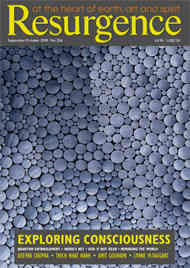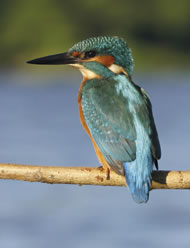Mary Oliver is an unusual poet. She writes about her relationship to the natural world to the exclusion of almost everything else. And her poems seem to require of the reader an attentive and loving acquiescence, but perhaps not the baffled concentration required to read so much contemporary verse. As a consequence, Oliver may not be as respected among her peers as other, more traditionally difficult poets. Whether because of that lack of tough demand, or because her poetry is not arcane in any way, or simply because she writes with intensity, insight and beauty about the complexities of the natural world, she’s almost unbelievably popular with the reading public, and especially so with readers of an ecological frame of mind and possessing ecological values. In recent years, this popularity has allowed her to give herself completely to the writing and the public reading of her poetry, and she has been making quite a nice living at it, itself almost unheard of on the contemporary poetry scene.
She published her first book, No Voyage, and Other Poems, in the 1960s, and has since published some twenty volumes of poetry and prose; last year’s Red Bird seems to portend many more books to come, even as Oliver moves vigorously into her seventies. Her critics have complained that human culture and its burdens, its troubles, its very real and compelling challenges simply don’t get attended to in Oliver’s view of the world. But it seems to me that this misses the point about her work. Certainly, the charge is true: politics, economics, war, terrorism are on the periphery of her world, if and when they’re mentioned at all. But what the reader begins to feel with Oliver’s poems is that contemporary life fades into insignificance simply by never being called to mind.
Oliver seems to feel that the life of culture is in fact insignificant; that our lives float upon or beside or within a natural world which is endlessly compelling and mysterious, as well as savage, heroic, barbaric, beautiful and tragic. The natural world operates on its own laws, by its own time scheme, and what goes on there is often luminous, always intense, utterly impersonal, and, especially as it mainly concerns living and dying, about ultimate matters. As she says in a remarkable poem, ‘The Kingfisher’, which Czes?aw Mi?osz includes in his anthology entitled A Book of Luminous Things, “I think this is the prettiest world – as long as you don’t mind | a little dying, how could there be a day in your whole life | that doesn’t have its splash of happiness?”
And it is a world beyond right and wrong, and any human concern for ethics. In another poem selected by Mi?osz, ‘Wild Geese’, Oliver points out that “You do not have to be good… You only have to let the soft animal of your body | love what it loves.” And if you can do that, she says, you will discover “your place in the family of things”.
We can’t help thinking in moral terms, she seems to suggest, but such terms aren’t those of the natural world. Death is such an intricate part of the world that not only can it not be objected to, it can’t even become a given. It is a resolute and necessary part of any equation: if the kingfisher is glorious and beautiful in his natural instinct (which is to kill), then the minnow is a beautiful “silver leaf with its broken red river”, which the kingfisher swallows “religiously”. There is no choosing. We are in a universe which we must come to love enough to accept, and if we wish to understand it, to pay the kind of attention to it Oliver insists we must, we can never judge.
In the deepest sense, Oliver’s poetry deals with epiphany, in that she celebrates over and over again, in her poems of snakes, owls, dogs, deer, and the tiding oceans, both of water and light, the utter and irreducible beauty of the ordinary world, with its unavoidable combination of the lurid and the glorious. As she puts it in one of her finest lyrics, ‘The Lilies Break Open Over the Dark Water’, “The lilies | are slippery and wild – they are |devoid of meaning, they are |simply doing, from the deepest | spurs of their being, | what they are impelled to do | every summer. | And so, dear sorrow, are you.” •
Thomas Bailey is Professor of English at Western Michigan University, USA.
The Kingfisher
The kingfisher rises out of the black wave
like a blue flower, in his beak
he carries a silver leaf. I think this is
the prettiest world – so long as you don’t mind
a little dying, how could there be a day in your
whole life
that doesn’t have its splash of happiness?
There are more fish than there are leaves
on a thousand trees, and anyway the kingfisher
wasn’t born to think about it, or anything else.
When the wave snaps shut over his blue head, the
water
remains water – hunger is the only story
he has ever heard in his life that he could
believe.
I don’t say he’s right. Neither
do I say he’s wrong. Religiously he swallows the
silver leaf
with its broken red river, and with a rough and
easy cry
I couldn’t rouse out of my thoughtful body
if my life depended on it, he swings back
over the bright sea to do the same thing, to do it
(as I long to do something, anything) perfectly.
Mary Oliver








